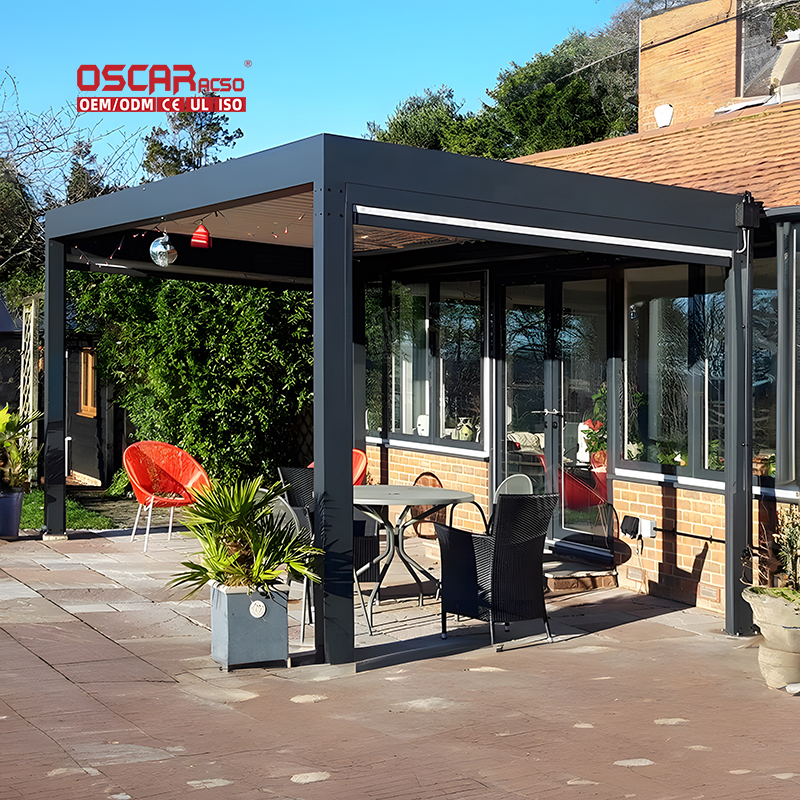Aluminium Pergola with Polycarbonate, Elevate Your Outdoor Living with Durability and Style
What exactly is an aluminium pergola with polycarbonate, and why is it becoming a top choice for homeowners? Essentially...
What exactly is an aluminium pergola with polycarbonate, and why is it becoming a top choice for homeowners? Essentially, it’s a sturdy outdoor structure featuring a frame made from aluminium and a roof panel crafted from polycarbonate material. This combination offers a perfect blend of modern aesthetics and practical functionality. From my perspective, having reviewed numerous patio setups, this specific type of pergola stands out for its ability to create a comfortable, weather-resistant space that enhances any garden or backyard. Let’s explore the reasons behind its growing popularity. 🌿
.jpg)
Unmatched Advantages of Aluminium and Polycarbonate
Why should you consider this combination for your pergola? The benefits are compelling and address common outdoor living concerns.
- •
Superior Durability: Aluminium is renowned for its resistance to rust and corrosion, ensuring your pergola withstands harsh weather conditions for years. Research indicates that the in-plane seismic performance of aluminium beams can be comparable to that of certain steel beams, highlighting its structural reliability .
- •
Excellent Light Transmission: Polycarbonate panels allow natural light to filter through while providing protection from UV rays, creating a bright yet shaded area.
- •
Low Maintenance Needs: Unlike wood, it doesn’t require painting or sealing—a simple occasional clean with soapy water suffices.
I’ve found that the powder-coated finishes on aluminium add an extra layer of protection against fading, which is a huge plus for long-term curb appeal.
🔍 Key Design Considerations Before You Buy
What are the critical factors to evaluate when selecting your pergola? It’s not just about looks; functionality is paramount.
- •
Panel Thickness and UV Protection: Opt for multi-wall polycarbonate sheets with a UV-resistant coating to prevent yellowing and ensure effective heat insulation.
- •
Frame Stability and Anchoring: Look for robust aluminium profiles and secure anchoring systems to prevent instability during strong winds.
- •
Customization Options: Consider modular designs that allow you to expand or adapt the structure to your space over time.
A common question is, “Does it get too hot underneath?” My experience is that with properly ventilated designs and light-colored panels, heat buildup is significantly minimized.
.jpg)
🛠️ Installation Insights and Practical Tips
Thinking about the setup process? It’s more straightforward than you might imagine, especially with a bit of planning.
- 1.
Site Preparation: Choose a level area and consider the foundation—pavers or a concrete slab work well for stability.
.jpg)
- 2.
Frame Assembly: Connect the aluminium beams; many modern systems use tool-free clamps for ease.
.jpg)
- 3.
Panel Attachment: Secure the polycarbonate sheets carefully, using appropriate seals to prevent water leakage.

- 4.
Final Adjustments: Ensure all fittings are tight and make any necessary adjustments for perfect alignment.
Pro tip: I always recommend checking local building regulations beforehand, as requirements can vary. Engaging a professional for larger projects can save time and ensure safety.
💡 Future Trends and Personal Observations
Where is the market for these structures heading? The demand for intelligent outdoor solutions is clearly rising. Based on industry observations, the integration of smart features like integrated LED lighting or automated louvered roofs is an emerging trend. From my viewpoint, the recyclability of aluminium and polycarbonate makes this a more sustainable choice, appealing to eco-conscious consumers. A notable insight is that products combining these materials are seeing increased interest in international trade, reflecting their global appeal .

